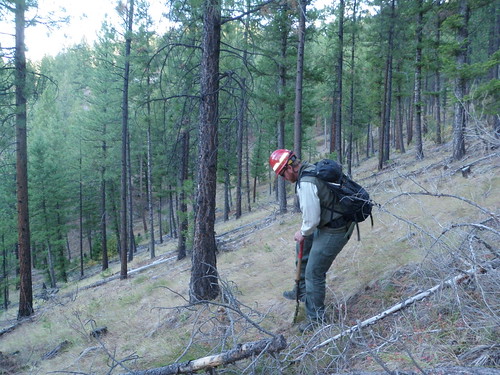
Soils sustain life. Without soils there would be no life as we know it. Consider what healthy soils mean for the 154 national forests and 20 grasslands in 44 states and Puerto Rico. Soils provide the fertility needed to grow the plants, forests and grasslands that support and shelter humans and animals; they store water and carbon; they recycle and purify water, air and nutrients; and healthy soils can reduce nutrient loading, sediment production and runoff.
Healthy productive soils are critical to the Forest Service mission to sustain the health, diversity and productivity of the nations’ forests and grasslands to meet the needs of future and present generations. Many of the forests and grasslands we manage today were created as part of a national effort to protect soil and water resource degradation and restore forests and ecosystems. The original forest reserves were identified to protect and secure favorable flows of water and timber (Organic Act). This included the means to reduce or minimize soil erosion.
Did you know that many of the lands that are now part of our national grasslands were purchased after the Dust Bowl to help preserve soils and prairie ecosystems? The Roosevelt Administration purchased lands in the 1930s as part of the land utilization project, specifically designed to restore severely eroded lands. The Forest Service’s Cimarron and Comanche and Kiowa and Rita Blanca National Grasslands were located in some of the most severely wind-eroded areas of the Great Plains. Our legacy is directly tied to our work then and ensuring healthy soils for the future.
Most of us take what’s under our feet– the soil– for granted. We take it for granted until there are problems such as floods, landslides, drought and fires. Then what do we do? We often don’t think about their impact on soils.
One of the Forest Service’s primary purposes is to sustain healthy and diverse forest and grasslands. Our mission includes more than timber or livestock production. The national forests and grasslands produce a wide range of goods and services for the American public: clean air, clean water, carbon sequestration, wildlife habitat, plant and animal biodiversity, and diverse recreational opportunities. But none of these would be possible without having the basic healthy soils that are necessary to support our life as we know it.
This year, the United Nations has declared 2015 as the International Year of Soils. Working through the Global Soil Partnership at the U.N.’s Food and Agriculture Organization, this declaration helps strengthen USDA’s commitment to soil conservation, restoration and education through its Forest Service and the Natural Resources Conservation Service. Please join with us in celebrating this International Year of Soils and appreciating how “Soils Sustain Life.”
